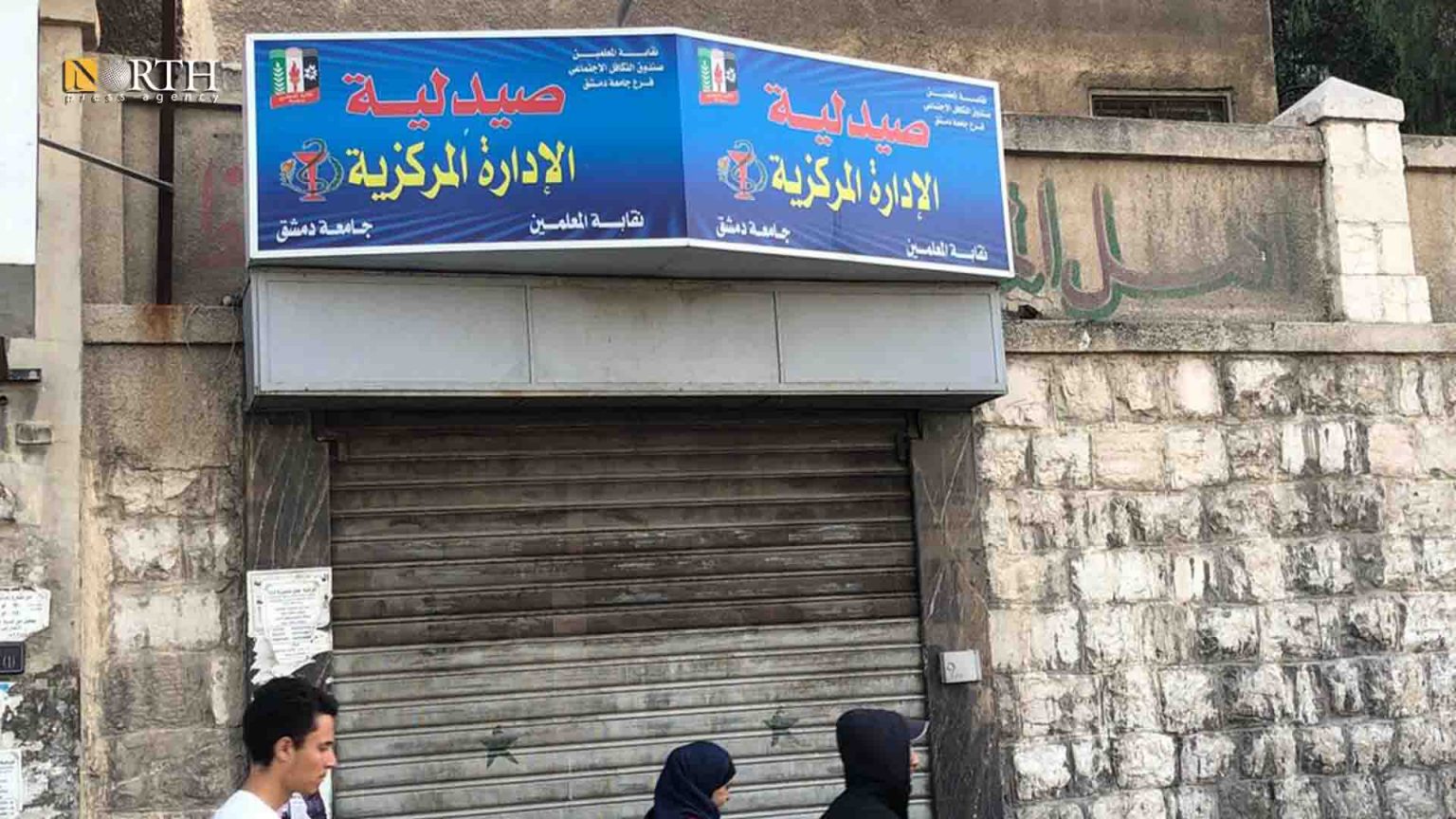The Syrian capital has been suffering from a severe shortage of medicines, especially those for heart diseases, hypertension, and diabetes, amid accusations that pharmacists are monopolizing them and not adhering to the prices that were set by the Health Ministry.
Ruba Khaledi, (a pseudonym) a student working in a pharmacy in Damascus, said that pharmacists hid certain medicines that are missed in the markets and “they sell them to some people for double the price.”
While Razan Salota, head of Pharmaceutical Affairs in the Ministry of Health, told the local Sham FM radio that there was a shortage of some imported raw materials to Damascus due to the coronavirus pandemic and that some countries abstained from exporting the materials to the region.
Medicines for specific people
Days ago, an elderly man came into a pharmacy for a hypertension medicine, but, “the pharmacist abstained from selling it to the old man under the pretext that the medicine was not available, but after two hours he sold four packets to a lawyer, at a doubled price,” Khaledi stated.
The shortage is due to, “the companies’ owners who smuggle medicines outside the country for higher profits,” Wasim Ghadaq, (a pseudonym) an employee in a medicine company in Damascus countryside, told North Press.
“The Ministry of Health knows about that, and it is sometimes involved in,” Ghadaq said.
Different prices
The price of medicine in Damascus are not those set by the Ministry of Health, and they differ from one pharmacy to another.
“The pharmacists delete the set official price, and write a doubled one,” Shayma’a Khalil, a resident of Damascus, said.
Additionally, one pharmacist in Damascus, who preferred not to be named, justified that his abstaining from adhering to the official pricing by the Ministry was due to “the little profit available in the prices that the ministry set.”
“A packet that is sold for 500 Syrian pounds for example, has a profit for about 125 pounds, which is a small profit,” he told North Press.
This article was edited by The Syrian Observer. The Syrian Observer has not verified the content of this story. Responsibility for the information and views set out in this article lies entirely with the author.


